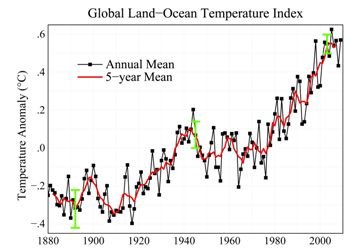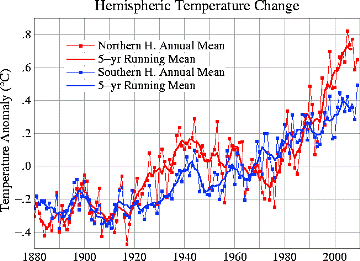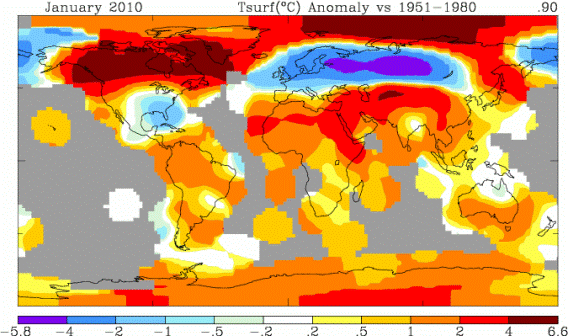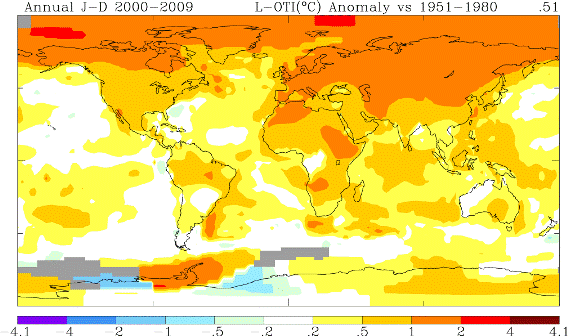As a child when I came down with pneumonia my parents did not rush me to see a policeman, a cattle rancher, or a local businessman. Instead they took me to see a medical doctor—someone who had studied that science for at least twelve years—and I was quickly given injections and put on antibiotics. Thanks to my parents’ ability to tell the difference between experts and non-experts, I survived.
Today, I have learned that same lesson. As an environmental reporter when I want information on the Critically Endangered Sumatran rhino, I don’t email a herpetologist (someone who has spent years studying reptiles and amphibians) or an ichthyologist (someone who studies fish), instead I e-mail a mammologist, more specifically someone who has worked with the Sumatran rhino.
You can probably see where this is going, but in the same light when I would like scientific information about the issue of climate change, I contact people who have been studying the science for decades. There are literally thousands of them and they are everywhere. As well, they include experts in a number of different fields: sometimes I’ll hear from a botanist who is studying how trees are migrating in the Amazon due to warmer temperatures, or a geologist looking at what the latest ice cores in Greenland show about past climates, or a marine biologist looking at acidification in the oceans.
 Except for a leveling off between the 1940s and 1970s, Earth’s surface temperatures have increased since 1880. The last decade has brought the temperatures to the highest levels ever recorded. The graph shows global annual surface temperatures relative to 1951-1980 mean temperatures. As shown by the red line, long-term trends are more apparent when temperatures are averaged over a five year period. Image credit: NASA/GISS. |
But I don’t email James Inhofe or his staff. Not because I don’t respect that the Senator can have his own views on climate change, even if they are mostly based on non-experts. I simply don’t email him because as a journalist I like to hear the facts from the experts and, no offense to Senator Inhofe, but I’m sure even he would admit he’s not a climatologist.
Just like my parents didn’t drop off their pneumonia-stricken son with a florist, so I don’t seek climate change facts from senators who clearly have political (not scientific) agendas. I also don’t email Al Gore, in case you’re wondering.
Other people I won’t contact: Donald Trump (businessman), Glen Beck (TV personality), George Will (a journalist never seeks out other journalists, especially ones prone to so many mistakes), or some dude I just met in a coffee-shop who tells me that the end of the world is in 2012, so who cares anyway right?
As an environmental journalist I have the responsibility to give readers the best, most up-to-date information on any topic, whether it is the birth of a baby Sumatran rhino or the warmest decade on record, incidentally 2000-2009.
What’s interesting to me is how many media outlets are reporting that recent climate ‘scandals’—such as the hacked emails, the mistake on Himalayan glaciers, and snowstorms in the United States—have undercut the science of climate change completely. Yet, when I hear from experts, I hear the exact opposite. The Himalayan glaciers error was unfortunate, but it was a human error in a report that spans thousands of pages from ten-of-thousands of scientists ; (even scientists, like medical doctors, make mistakes from time to time) the hacked emails, also unfortunate, but largely taken out of context and blown-up by talking heads; and those snow storms?
 Both hemispheres have warmed significantly over the last hundred and thirty years. This graphs shows annual and five-year running mean temperature changes with the base period 1951-1980 for the northern (red) and southern (blue) hemispheres. Image credit: NASA/GISS. |
Well, even if we want to ignore the fact that the science of climate change has long predicted heavier precipitation events—i.e. big snow dumps—due to increased evaporation, one could also point out that regional weather is not global climate. For example, while it was frigid in London and Tulsa in January; the Arctic and Canada were unseasonably warm. NOAA—an expert organization—has found in preliminary data that this was the fourth warmest January on record (i.e. from 1880).
Still, I ask researchers, what about the overall science of climate change? See now, I’m getting to the big question. I tell them that I heard it was dead. I heard that it has been demolished. I heard that it was proven to be a conspiracy. In fact someone told me it was crushed by the sensible nature of mankind and media who couldn’t conceive of global warming when it was cold outside.
No, no, they say, the science of climate change is as stable as it ever was, which means it is always evolving, but the backbone—the fact that the world is warming and that in high probability greenhouse gas emissions are causing a good chunk of that—hasn’t changed one iota. As with any large scientific endeavor (and climate change is huge) there remain details to uncover, more data to be collected, more research to be done, but all-in-all the science of climate change doesn’t just evaporate because of human impoliteness (e-mails) or human error (IPCC report). This is what the experts tell me, so this is what I report.
If one day scientists began publishing papers saying that they discovered that climate change was actually not occurring; that experts had found holes in the data the size of elephants; and in fact, if anything, the world was cooling or just staying mildly temperate, then I will take a deep breath, grin widely because my children won’t have to deal with the onslaught of a warmer, unstable world, and set to work on an explosive article regarding these new findings. But until such data comes from a good number of actual experts (i.e. people trained for years on how to collect, analyze, and communicate complex data) I’ll refrain from reporting rumors, innuendos, and fairytales.
However, if I’m doing a story about the politics of climate change then all bets are off and I have no problem with hearing from James Inhofe, Glen Beck, Al Gore, or that guy in my coffee-shop.

This map shows the January 2010 temperature anomaly relative to the 1951-1980 mean. Despite a colder than normal January on the east coast of the United States and in Europe and Russia, the rest of the world was generally warmer. According to preliminary data from the NOAA this was the fourth warmest January since 1880 and the warmest ever for the southern hemisphere. Image credit: NASA/GISS

This map shows the 10-year average (2000-2009) temperature anomaly relative to the 1951-1980 mean. The largest temperature increases are in the Arctic and the Antarctic Peninsula. 2000-2009 was the warmest decade on record. Image credit: NASA/GISS.
Related articles
“No change whatsoever” in scientists’ conviction that climate change is occurring
(02/22/2010) Despite some politicians and TV personalities claiming that climate change is dead, a panel of influential US and European scientists held a press conference at the annual meeting of the American Association for the Advancement of Science to set the record straight on the state of the science and the recent media frenzy against climate change. “There has been no change in the scientific community, no change whatsoever” in the consensus that globally temperatures are rising, said Gerald North, professor of atmospheric sciences at Texas A&M University. Recent data has shown that the decade from 2000-2009 was the warmest decade on record.

(02/03/2010) A claim published in the Sunday Times over the veracity of a statement published in an Intergovernmental Panel on Climate Change (IPCC) report may land the British newspaper in hot water. On Sunday, Jonathan Leake, Science & Environment Editor of the Sunday Times, accused the IPCC of making a “bogus rainforest claim” when it cited a report warning that up to 40 percent of the Amazon could be “drastically” affected by climate change. Climate change skeptics immediately seized on “Amazongate” as further evidence to discredit the IPCC just two weeks after it was found to be using shoddy glacier data in its 2007 climate assessment.
Rainforest expert agrees with IPCC: warns of ‘tipping point’ for Amazon

(02/03/2010) Amid questions over the Amazon forests’ capacity to survive climate change, a renowned tropical biologist says that in fact the fears are real, reports Tierramerica. Speaking at the Biodiversity Science Policy Conference in Paris, Thomas Lovejoy, biodiversity chair at the Washington DC-based Heinz Center for Science, Economics and the Environment, and chief biodiversity adviser to the president of the World Bank, described the Amazon rainforest as “very close to a tipping point”.
NASA: Arctic melt season lengthening
(02/03/2010) Newly released images from NASA and the National Snow and Ice Data Center show that the Arctic’s melt season has lengthened significantly over the past few decades.
(01/27/2010) The 2000s were the warmest decade on record according to analysis by NASA’s Goddard Institute for Space Studies (GISS).
NASA: 2009 second warmest year on record
(01/24/2010) According to NASA’s Goddard Institute for Space Studies (GISS), last year was tied for the second warmest year on record after 2005, the warmest year on record. If just looking at the southern hemisphere, however, 2009 proved the warmest yet recorded since record-taking began in 1880. Overall 2009 tied a total of five other years—four from the 2000s—for the second warmest on record. But, researchers say what is most important was that the past decade, from January 1st 2000 to December 31st 2009, proved the warmest on record.
Climate change pushes massive Antarctic glacier past tipping point
(01/14/2010) A new study shows that a major Antarctic glacier has likely passed its tipping point, putting it on track to lose 50 percent of its ice in 100 years. Such a loss is estimated to raise global sea levels by 24 centimeters (9.4 inches), according to the study published in the Proceedings of Royal Society A.
Canadians say climate change bigger threat than terrorism
(01/11/2010) A new poll shows that Canadians now see climate change as a larger threat than terrorism, even though their government has largely scaled back efforts to combat climate change. Half of the poll’s respondents said that climate change was a ‘critical threat’, while only a quarter said the same about terrorism.
Record-breaking snow across the US and climate change
(12/26/2009) Over the past few weeks the United States has been pounded by a number of big snow storms. A week ago Washington DC received 18 inches of snow, setting a number of records. Over Christmas, the middle of the country, from Texas to Minnesota was also hit by record amounts of snow. While snow fall over the East Coast and middle of the country in the United States in December is hardly unusual, a number of record amounts of precipitation may point to a larger shift in the climate. Scientists say that higher temperatures causes more water evaporation, which increases the chances of heavy precipitation events, such as floods and snowstorms.
Catastrophic sea level rise could occur with only two degrees Celsius warming
(12/17/2009) Allowing the climate to rise by just two degrees Celsius—the target most industrialized nations are currently discussing in Copenhagen—may still lead to a catastrophic sea level rise of six to nine meters, according to a new study in Nature. While this rise in sea levels would take hundreds of years to fully occur, inaction this century could lock the world into this fate.













